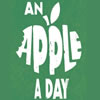
Popular Sayings & their Meanings
Found In: ›Activities ›Quiz ›Trivia ›Happy Hour ›DIY Activities ›* November Resources & Templates *


Found In: ›Activities ›Quiz ›Trivia ›Happy Hour ›DIY Activities ›* November Resources & Templates *
